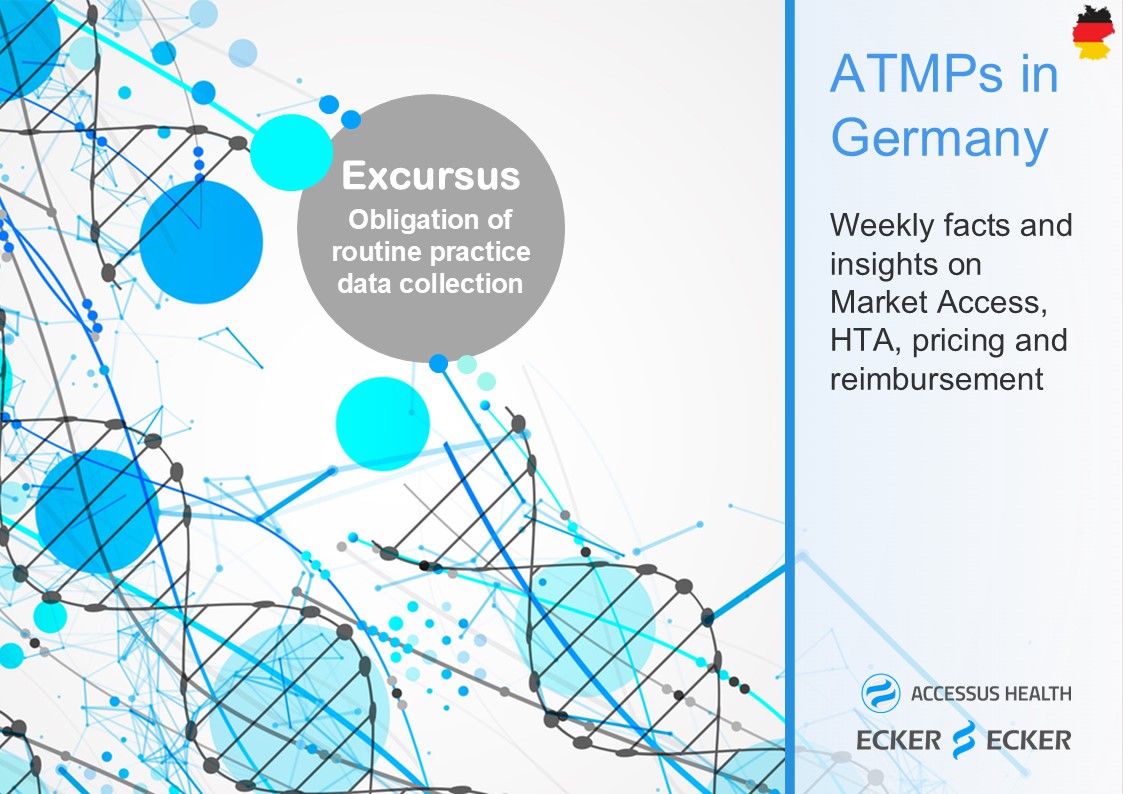ATMPs in Germany - Obligation for routine practice data collection

👉 The obligation for routine practice data collection negatively impacts reimbursement and reimbursement price. However, its exact implications will be evident only after the first procedure has been completed.
At the time of product launch, the available evidence of a new drug (or new ATMP) might not be sufficient for German HTA. If drugs are conditionally authorized, authorized under exceptional circumstances or are orphan drugs, the German HTA body can oblige routine practice data collection for future reassessment.
🔎 Reason for the obligation of routine practice data collection for Zolgensma were e. g. missing comparative data vs. the appropriate comparator as well as the lack of long-term data and missing data for a specific subpopulation. Especially the required direct comparative evidence seems to be the main trigger for obligation of a routine practice data collection.
❗ The routine practice data collection heavily impacts the reimbursement and reimbursement price: Use of drugs undergoing routine practice data collection is usually restricted to participating physicians. After completion of routine practice data collection, a new price negotiation starts on basis of the new data. If the routine practice data collection fails or will not be implemented by the HTD, reimbursement price cuts need to be expected (analogs are rare, but price cuts in a double-digit percentage figure need to be assumed).
The ongoing procedures on routine practice data collection have several features in common:
➡️Routine practice data collection is an RWE collection in a registry study
➡️ Substantial adjustments of existing registries are required: including collection of outcomes, like PROs, and potential confounders
➡️ For quantification of an additional benefit, effects need to be way larger than in an RCT
➡️ Strict timeline: study protocol development and registry adjustment within 12 months; first interim analysis 6 months later
➡️ Routine practice data collection can be avoided, in case numbers of patients are below < 100 in Germany
➡️ German HTA body reaches out to HTD to question planned evidence – this is an indication for a future obligation of routine practice data collection
➡️ Once running, new drugs might be added to routine practice data collection (like Evrysdi)
One major question is unresolved so far:
❓ How will RWE from routine practice data collection be considered for benefit assessment? Previous established evidence requirements for German HTA could only hardly be met by RWE.
💡 Common features of routine practice data collection already exist. However, the full impact cannot be conclusively predicted. For this reason, monitoring is essential, especially if a routine practice data collection is already running in a planned indication.